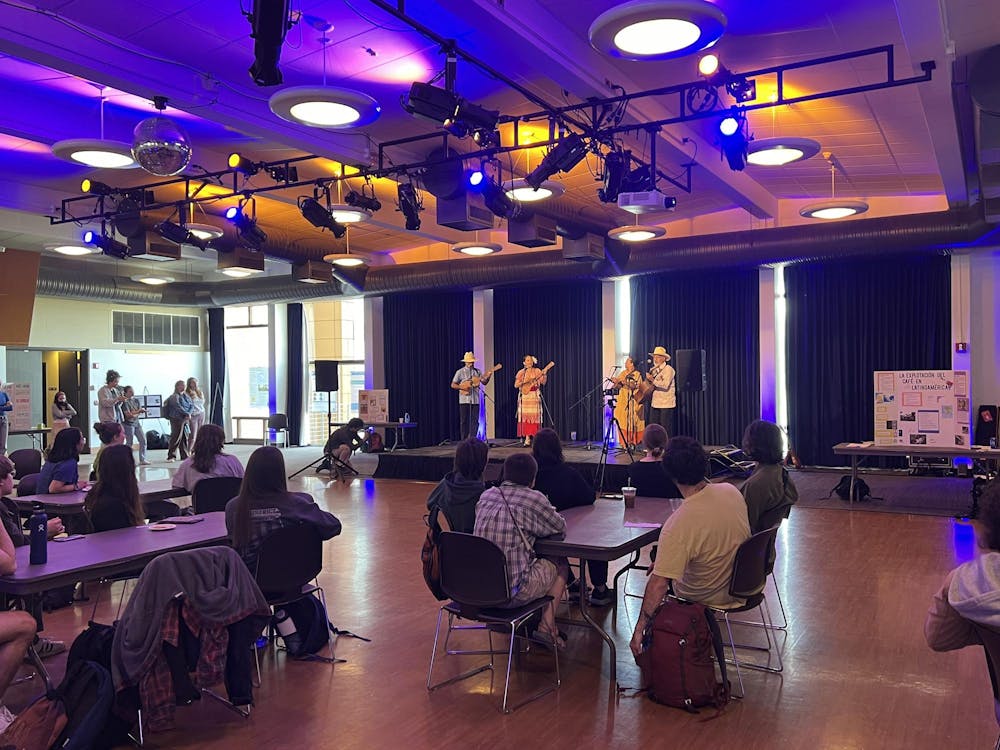Latine students in Washington face unique challenges in their journey through higher education, but organizations such as the League of United Latin American Citizens and the Washington Commission on Hispanic Affairs are fighting those challenges.
Cost, lack of scholarships and low support in college are some of the biggest areas of concern. Adán Mendoza, a Washington State councilmember for the League of United Latin American Citizens, spoke to these concerns.
“When you speak to Latinx families one of the issues that comes up is cost. Washington state has one of the most generous forms of financial aid in the country. We have the Washington College Grant which essentially provides free tuition for families that are eligible, but we have the lowest FAFSA completion rate in the country,” Mendoza said.
Mendoza argued that the lack of knowledge about financial aid is due to improper distribution of information about these resources.
“There has been a problem with asymmetric information. Where the information of these opportunities isn't being propagated to Latinos. So while people say their main concern is cost, we should really be looking at how we are communicating the opportunities they are eligible for,” Mendoza said.
The Washington College Grant is available to Washington residents, low to middle-income families, recent high school graduates and working-age adults. The League of United Latin American Citizens also operates its own scholarship program for students who want to pursue higher education.
According to Mendoza, getting to college is just the first step; getting the support needed to succeed is equally important.
“The state is in a bit of a predicament. With the Washington College Grant, the problem with sending low-income families to college is that poverty does not disappear when you're in college. If anything it's exacerbated,” Mendoza said.
Mendoza argues that colleges and the state need to provide more assistance to students.
“When you're in college it's hard to finish your credentials when you're hungry. It's nearly impossible to finish your credentials when you're living in your car,” Mendoza said. “College admittance is one thing, but college retention is a whole nother ball game.”
The League of United Latin American Citizens has advocated for changes in this area, and Mendoza argues that the biggest barrier to change is policymakers.
Victor Rodriguez is a community development officer for the Washington Commission on Hispanic Affairs. The commission helps students connect with non-governmental organizations (NGO) that assist in the areas of financial aid, counseling, applications and general navigation of the college system.
“There are lots of professionals that provide support but the follow-up is lacking,” Rodriguez said.
Rodriguez brought up the lackluster opportunities for counseling.
“You can have hundreds of students for one Hispanic advisor,” Rodriguez said. “Growth in faculty and staff is needed.”
Iris Ardon, a Western student, is an example of how financial aid and a strong support system can create academic success. When she first started at Western, Ardon didn't feel supported by the school, but that quickly changed.
“I didn't have anyone to talk to until I met a counselor. Because of him, I didn't give up on going to university,” Ardon said.
Ardon met Cameron Wühr, an academic and career advisor, during an English 101 class.
“After that, I became so close to him that every quarter I was asking him for help with my new schedule because the system was very hard for me to understand,” Ardon said. “He always supported me from the beginning at Western. I was very concerned about my future, but every question I had, he gave me positive answers.”
Ardon moved to Bellingham from Honduras in 2015 and is now in her third year. She is a Spanish major, with a minor in psychology and teaches Spanish to sixth graders when she's not studying.
“I like Western because it gives me a good opportunity for my future and my career. With financial aid, I can change my career without being worried I don't have enough money to pay for classes. I’m glad I don't have to bother my family and ask them to pay,” Ardon said.
Ardon’s journey in college, and others like hers, are why Mendoza advocates for students and why he does his job.
“The thing that I love about my job the most is seeing my people succeed,” Mendoza said. “For me to see people that look like me make it out, and change the trajectory of their life for the better, that's better than any compensation.”
Liam Walsh (He/Him) is a city news reporter this quarter for the Front. He is a sophomore majoring in journalism with a news/editorial concentration. In his free time he plays for the Western rugby team. Reach him at liamwalsh.thefront@gmail.com






